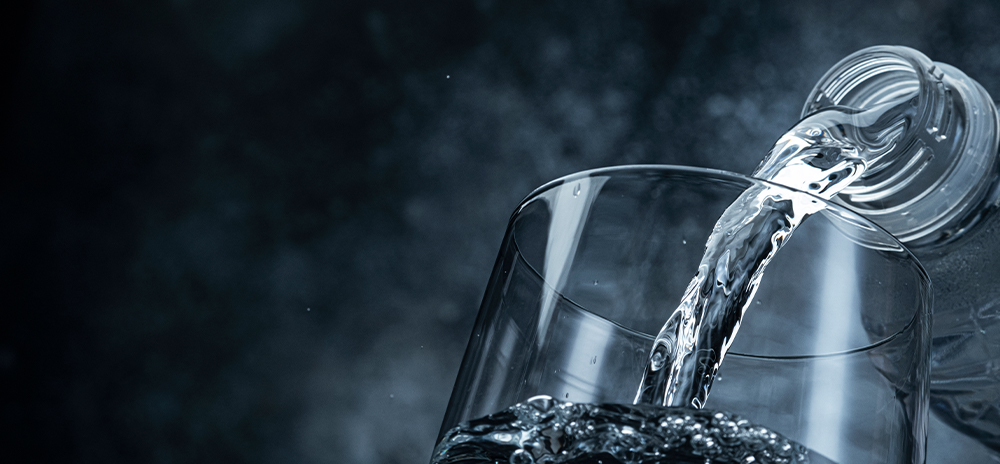Technical Articles

Symptoms
Scale build-up in plumbing systems, including pipes, faucets, appliances, and water heaters. High soap and detergent usage and stiffer dingy clothes.
Causes
As water moves through soil and rock, it dissolves very small amounts of minerals and holds them in solution. Calcium and magnesium dissolved in water are the two most common minerals that make water hard.
Health Concerns
Hard water is high in dissolved minerals, specifically calcium and magnesium. Hard water is not a health risk, but a nuisance because of mineral buildup on fixtures and inside pipes as well as poor soap and/or detergent performance.
Action Level
Water over 10.5 gpg (180 mg/l) is considered extremely hard, but savings are realized at levels over 3 gpg (51 mg/l).
More Information
Hard water is high in dissolved minerals, specifically calcium and magnesium. Hard water is not a health risk, but a nuisance because of mineral buildup on fixtures and in side pipes as well as poor soap and/or detergent performance.

Water is a good solvent and picks up impurities easily. Pure water is tasteless, colorless, and odorless, and is often called the universal solvent. When water is combined with carbon dioxide to form very weak carbonic acid, an even better solvent results.
As water moves through soil and rock, it dissolves very small amounts of minerals and holds them in solution. Calcium and magnesium dissolved in water are the two most common minerals that make water hard. The degree of hardness becomes greater as the calcium and magnesium content increases.
Hard Water Problems
Laundry
Clothes washed in hard water often look dingy and feel harsh and scratchy. The hardness minerals combine with some elements to form insoluble salts, making them difficult to remove. Soil on clothes can introduce even more hardness minerals into the wash water. Continuous laundering in hard water can damage fibers and shorten the life of clothes by up to 40 percent.
Bathing
Bathing with soap in hard water leaves a film of sticky soap curd on the skin. The film may prevent removal of soil and bacteria. Soap curd interferes with the return of skin to its normal, slightly acid condition, and may lead to irritation. Soap curd on hair may make it dull, lifeless and difficult to manage.
Dishwashers
When washing dishes, especially in a dishwasher, hard water may cause spotting and filming on your glassware and other utensils. The minerals from hard water are released faster when it comes into contact with heat, causing an increase in the amount of spotting and filming that occurs. This problem is not a health risk, but it can be a nuisance to clean and makes your glasses and silver spotted and dingy.
Problems in Water Heating Systems and Pipes

Hard water also contributes to inefficient and costly operation of water-using appliances. Heated hard water forms a scale of calcium and magnesium minerals, limescale deposits, that can contribute to the inefficient operation or failure of water-using appliances. Pipes can become clogged with scale that reduces water flow and ultimately requires pipe replacement. Limescale has been known to increase energy bills by up to 25%
Limescale in Solar Heating Systems
Solar heating, often used for heating swimming pools is prone to limescale buildup, which can reduce the efficiency of the electronic pump and therefore the overall systems performance will deteriorate.
Hard Water Benefits
Hard water is not a health hazard. In fact, the hard drinking water generally contributes a small amount toward total calcium and magnesium human dietary needs, and in some instances, where dissolved calcium and magnesium are very high, water could be a major contributor of calcium and magnesium to the diet.
The ideal solution would be to leave the calcium in the water, but alter its state so that it couldn't form limescale. This is what the GreenWave Salt-Free System does.
Water Testing for Hardness
If you are on a municipal water system, the water supplier can tell you the hardness level of the water they deliver. If you have a private water supply, you can have the water tested for hardness. HubSet also offer a number of water tests HERE.
Once you've tested your water supply, the hardness of your water will be reported in grains per gallon, milligrams per liter (mg/l) or parts per million (ppm). One grain of hardness equals 17.1 mg/l or ppm of hardness.
| Classification | mg/L or ppm | grains/gal |
|---|---|---|
| Soft | 0 - 17.1 | 0 - 1 |
| Slightly Hard | 17.1 - 60 | 1 - 3.5 |
| Moderately Hard | 60 - 120 | 3.5 - 7.0 |
| Hard | 120 - 180 | 7.0 - 10.5 |
| Very Hard | 180 & over | 10.5 & over |
THE RIGHT SOLUTION FOR YOU
Contact us today for more information about our products and services.
CONTACT US

